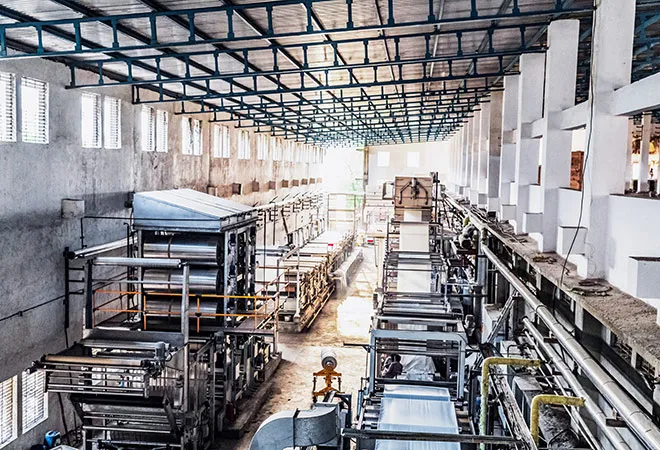
The COVID-19 pandemic and the Ukraine war have disrupted economies and exposed the vulnerabilities resulting from a high degree of economic interdependence. The weaponisation of energy and markets by Russia and China forced Europe to secure new global partnerships to diversify trade partners, reduce existing dependencies, establish secure supply chains for critical products, and strengthen economic resilience. The geostrategic imperatives for swift negotiation of Europe’s impending free trade deals have only grown stronger.
How Europe negotiates trade deals
As the world’s largest single market area and amongst its most
outward-oriented economies, free trade is amongst the European Union’s (EU) core principles. In fact, for as many as 80 countries, the EU is their
top global trading partner, compared to only 20 for the United States (US). According to a
report by the European Commission released in October this year, EU exports under Free Trade Agreements (FTA) surpassed 1 trillion euros for the first time. However, with the centre of economic activity shifting from the Atlantic to the Asia-Pacific, the EU’s share of global trade is declining, making FTAs all the more vital.
External trade— trade outside of the EU—is an
“exclusive responsibility of the EU”. In other words, the EU, and not the national governments of member states, has the competence to negotiate FTAs with third countries on behalf of its 27 member states. This is because the EU as a whole retains much more bargaining clout than individual member states.
The weaponisation of energy and markets by Russia and China forced Europe to secure new global partnerships to diversify trade partners, reduce existing dependencies, establish secure supply chains for critical products, and strengthen economic resilience.
Since 2006, the EU has been negotiating trade agreements with other countries, which increase the EU’s exports, remove customs duties and non-tariff barriers, and help to secure access to resources. The European Commission
negotiates the deal with the trading partner on behalf of the EU, only after it receives authorisation to do so from the Council. After negotiations are complete, the deal presented by the Commission is only approved if both the Council and the European Parliament ratify it. The trading partner then has to ratify the signed deal.
For any country, the process of signing free trade deals is tedious and technical. But that task becomes mammoth when approvals from
almost 40 national and regional parliaments are required to ratify a deal. Such is the case for EU Free Trade Agreements (FTA), which in many cases, have to go through a painstaking national ratification process, if the deal
covers areas where member states have responsibility.
Accelerating the European free trade agenda
Russia’s war in Ukraine has only heightened the appetite for free trade in Brussels in a bid to diversify trade flows, as EU Trade Commissioner Valdis Dombrovskis
reiterated. Furthering trade cooperation with other countries not only comes with the obvious economic benefits but also fits into a wider geopolitical strategy. The EU’s proposed FTAs with India and Australia fit into the
EU Strategy for Cooperation in the Indo-Pacific region and in balancing China with whom both India and Australia have
strained relations. Volatile geopolitical dynamics have even spread the momentum for free trade amongst groups like the
Socialists and Democrats—the centre-left and second largest party in the European Parliament - who are now
advocating trade deals over their traditional preference for sustainability.
The EU’s proposed FTAs with India and Australia fit into the EU Strategy for Cooperation in the Indo-Pacific region and in balancing China with whom both India and Australia have strained relations.
The time for boosting European free trade with the world is ripe, especially since the Czech Republic currently has the
Presidency of the Council of the EU, followed by Sweden in January 2023. Both countries are amongst the EU’s biggest
supporters of free trade—a refreshing change from the French Presidency under President Emmanuel Macron who was
opposed to trade deals ahead of the French presidential election in April, fearing their impact on his popularity with farmers and other voters.
With trade deals with the EU’s largest trading partners
China and the
US remaining frozen, attention has shifted elsewhere. There are several agreements in the
pipeline that Europe is hoping to finalise including with Australia, Chile, Mexico, and Canada. Even trade negotiations with India were relaunched earlier this year, after remaining stalled since 2013, with
two rounds of talks completed.
A fast-track approach: Sidestepping national capitals?
As mentioned earlier, in most cases, a trade deal can only be concluded after national (and sometimes regional) parliaments within EU member states also ratify and sign it. But when the regional Parliament of Wallonia, a tiny French-speaking region in the South of Belgium, almost
destroyed the
EU-Canada Comprehensive Economic & Trade Agreement (CETA) in 2016 over its investment protection clauses, it served as wake-up call for the EU, demonstrating the difficulty in securing what should have been a relatively easier trade pact with Canada which is a developed country, likeminded ally, and Western liberal democracy. The full deal is
still not ratified in several EU countries.
Thus, from previous Commission President Jean-Claude Juncker’s leadership back in 2017, Brussels has been considering a
fast-track approach that would allow for ratification of deals without consultations from national parliaments. For this, the deal would be split into different sections. The main components on trade would only need ratification by the Council and the European Parliament at the Brussels level as opposed to a
mixed agreement that would require ratification by the EU institutions and national and regional parliaments, while the sections on investment and political cooperation would also need approval by national parliaments.
The basis for this change in approach is a key
ruling by the European Court of Justice in 2017 on the
EU-Singapore trade deal which mentions that certain parts of the deal such as investment issues fell under the EU’s shared competence with member states, allowing for the interpretation that the trade parts of the deal only need approval at the Brussels level. In this manner, the EU-Vietnam deal was
concluded in 2020 by
separating the trade part of the deal from the investment protection agreement.
The main components on trade would only need ratification by the Council and the European Parliament at the Brussels level as opposed to a mixed agreement that would require ratification by the EU institutions and national and regional parliaments, while the sections on investment and political cooperation would also need approval by national parliaments.
It is being
touted that the
modernised trade agreement with Mexico, the EU’s largest trading partner in Latin America, which was approved last year, would follow the Singapore precedent for speedy approval. This is despite the deal being presented as a “mixed agreement” as tasked by EU member states. However, critics
worry that doing so would set precedents for other future EU trade agreements that have also been presented as a mixed agreement and are far more controversial.
Of particular concern is the
EU-Mercosur trade deal which remains stuck since 2019 due to environmental concerns such as deforestation in the Amazon rainforest. The
bloc comprising Brazil, Argentina, Paraguay, and Uruguay is a relatively closed market of 260 million consumers with an annual GDP of 2.2 trillion euros, and a trade deal would be a crucial economic foray by Europe into the region. Yet, the EU’s renewed pragmatism on free trade has left critics fearing how environmental concerns, sustainability and democracy itself may turn out to be the casualty. Questions are being
raised on the legitimacy of an EU-only treaty compared to a mixed one.
Already within member states, the supranational EU struggles with a reputation of snatching decision-making powers from capitals. In recent times, the Commission has coordinated tremendously impactful policies on behalf of member states including a
common vaccines policy at the peak of the pandemic and European
bans on Russian energy and sanctions during the Ukraine war. As citizens
reel from soaring inflation and the increased costs of living imposed by European sanctions on Russia, questions of alleged EU overreach on trade policy may resound.
European politics already suffers from a populist backlash against globalisation. Scrapping the mixed nature of the trade agreements could lead to accusations of anti-democratic power grabs by Brussels Eurocrats and the alleged lack of transparency in European trade policies. Moves like sidestepping national parliaments could further boost populism as rightwing movements on the continent hinge on anti-EU sentiment and the recurrent theme of the long arm of Brussels extending over capitals. Even European citizens, who tend to
support sustainability and climate change agendas, may contribute to opposition surrounding such deals, as was
evident during the negotiations of the Transatlantic Trade and Investment Partnership (TTIP) with the US that eventually collapsed due to
heavy public contestation.
As Europe recalibrates its relations with Russia and China, there is no doubt that it needs to deepen trade with other existing and new partners. But as a union of 27 member states, it will need to balance these geostrategic and geoeconomic imperatives without alienating the national capitals.
The views expressed above belong to the author(s). ORF research and analyses now available on Telegram! Click here to access our curated content — blogs, longforms and interviews.



 The COVID-19 pandemic and the Ukraine war have disrupted economies and exposed the vulnerabilities resulting from a high degree of economic interdependence. The weaponisation of energy and markets by Russia and China forced Europe to secure new global partnerships to diversify trade partners, reduce existing dependencies, establish secure supply chains for critical products, and strengthen economic resilience. The geostrategic imperatives for swift negotiation of Europe’s impending free trade deals have only grown stronger.
The COVID-19 pandemic and the Ukraine war have disrupted economies and exposed the vulnerabilities resulting from a high degree of economic interdependence. The weaponisation of energy and markets by Russia and China forced Europe to secure new global partnerships to diversify trade partners, reduce existing dependencies, establish secure supply chains for critical products, and strengthen economic resilience. The geostrategic imperatives for swift negotiation of Europe’s impending free trade deals have only grown stronger.
 PREV
PREV


